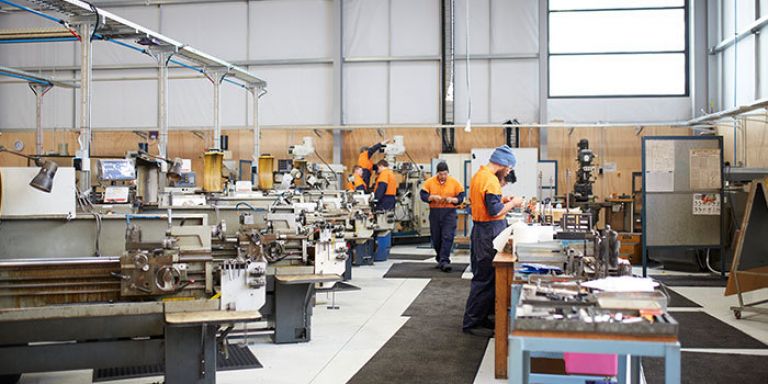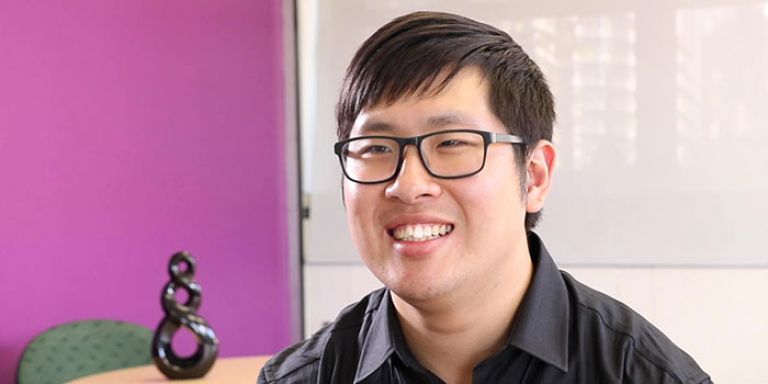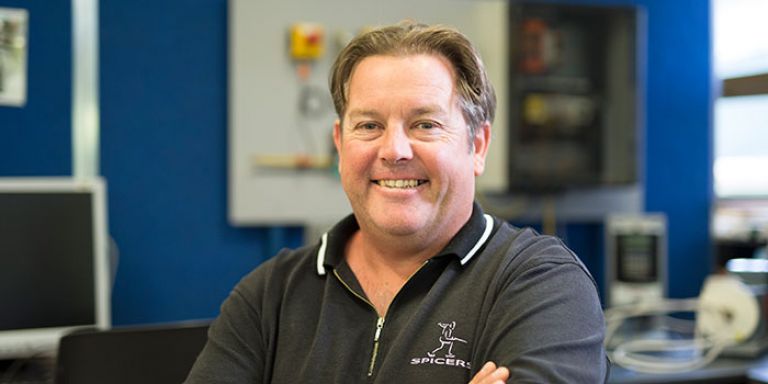Programme highlights
This qualification is your chance to strengthen your skills in Mechanical Engineering. You’ll graduate at the same level as degree students.
Graduates of this qualification will be ready for jobs in the field of Mechanical Engineering.
Entry requirements
Applicants must meet the following entry requirements:
Academic
A 3 year bachelor’s degree in a Mechanical engineering discipline;
Or
Equivalent practical, professional or educational experience of an appropriate kind;
Or
Special entry may be granted by the Head of School responsible for the programme to an applicant who does not meet all entry criteria, where the Head of School is satisfied the applicant is capable of undertaking the programme of study.
English language entry requirements
Applicants must have sufficient competence in the English language to undertake this programme, which is taught and assessed in English.
Any applicant whose first language is not English may be required to provide evidence of their English language competency.
International students: English language entry requirements
For the minimum English language requirements refer to the requirements set out in the NZQF Programme and Accreditation Rules.
Other entry requirements
Applicants must be physically capable of completing the practical aspects of the programme, by being able to work effectively, efficiently and safely.
Special & discretionary admission
Any ākonga who is 20 years of age or older and has not reached the general admission requirements for their intended programme is eligible for Special Admission. MIT works with the ākonga to ensure they are prepared for their intended programme. Any ākonga who is not yet 20 years of age and has not reached the general admission requirements for their intended programme may be eligible for Discretionary Admission. In assessing whether to grant Discretionary Admission, the delegated authority focuses on the applicant’s level of preparedness for their intended programme.
Give yourself credit with Recognition of Prior Learning (RPL)
Did you know you can use the knowledge and experience you already have to your advantage?
Your previous work experience and on-the-job skills, volunteering, professional development, and other providers’ qualifications can be recognised as prior learning, matched against credits in our courses, and put towards your qualification – potentially saving you money and possibly helping you to complete your qualification faster Learn more.
Programme structure
You will need to complete the below courses related to this strand (120 credits):
Compulsory courses
Level 7
115.719 Engineering Development Project (30 credits)
Metro Group course code: MG7101
*This is a year-long course
The aim is to enable students to investigate an engineering problem; to propose, specify, design and develop a solution and where feasible, to construct and test a prototype.
The learning outcomes on successful completion of this course are the student should be able to:
- Synthesise a solution for an engineering problem.
- Complete a project to a specified standard.
- Design, project manage and evaluate a concept/model/product.
- Use software application packages as an engineering tool, if required.
- Communicate effectively with customers, peers, technicians and engineers.
241.704 Applied Computational Modelling (15 credits)
Metro Group course code: MG7031
The aim is to enable students to analyse engineering components and systems and to solve engineering problems using various computerised tools.
The learning outcomes on successful completion of this course are the student should be able to:
- Use computational tools to model engineering performance and behaviour.
- Critically analyse the use of computational tools to model engineering performance and behaviour.
243.703 Energy Engineering (15 credits)
Metro Group course code: MG7022
The aim is to enable students to undertake a critical evaluation of energy use, energy efficiency and alternative sources of energy for specific engineering applications.
The learning outcomes on successful completion of this course are the student should be able to:
- Discuss and compare various types of energy resources and the principles for converting from one form to another.
- Analyse and evaluate energy use over the lifecycle of a product or project.
- Collect data from thermodynamic systems and evaluate the performance of the system.
- Evaluate the global considerations of energy production, management and conservation including the environmental and economic impact of common fuels.
271.701 Fluids Power and Advanced Fluid Mechanics (15 credits)
Metro Group course code: MG7024
The aim is to enable students to analyse specific problems, design solutions and evaluate fluid power systems in industrial engineering applications.
The learning outcomes on successful completion of this course are the student should be able to:
- Analyse and design hydrostatic and hydrodynamic fluid systems.
- Analyse and design fluid power systems.
- Evaluate the performance of fluid power systems.
Elective courses
You will need to complete three elective courses from the below:
Level 6
523.613 Engineering Project (15 credits)
Metro Group course code: MG6136
The aim is to enable students to apply knowledge and problem-solving skills to plan and complete an engineering project relevant to the strand studied (mechanical, electrical or electronics) to accepted practice and standards from a given specification.
The learning outcomes on successful completion of this course are the student should be able to
- Develop preliminary design(s), based on a given specification, for an engineering project relevant to their strand (Mechanical, Electrical, Electronics).
- Develop a plan or design parameters considering functionality, safety, environmental, cultural and ethical issues.
- Undertake well-defined planning and produce as project output.
- Produce supporting documentation relevant to project output.
- Evaluate compliance of the project output against specification.
- Present findings to an audience in a professional manner.
142.603 Mathematics Level 6 (15 credits)
Metro Group course code: MG6190
The aim is to enable students to understand advanced calculus and develop the ability to formulate and solve models of complex engineering and scientific systems.
The learning outcomes on successful completion of this course are the student should be able to:
- Use and apply vectors, vector calculus and advanced calculus.
- Use and apply mathematical transforms including Fourier series and Laplace transforms.
- Use and apply probability and statistical techniques.
- Use and apply numerical methods.
241.612 Manufacturing Processes & Production (15 credits)
Metro Group course code: MG6044
The aim is to enable students to apply engineering knowledge to common manufacturing processes, including quality control, inventory control, and scheduling and queuing.
The learning outcomes on successful completion of this course are the student should be able to:
- Select mechanical engineering manufacturing processes for products.
- Select equipment and tooling to support mechanical engineering manufacturing processes.
- Apply knowledge of quality management principles.
- Analyse one or more manufacturing processes including their environmental and societal impacts.
242.623 Mechanics of Machines (15 credits)
Metro Group course code: MG6033
The aim is to develop understanding to solve complex problems involved with machinery dynamics such as power transmission, balancing, noise, and lubrication systems.
The learning outcomes on successful completion of this course are the student should be able to:
- Identify dynamic loads in rotational equipment and explain the need for balance and how it is achieved.
- Analyse mechanical systems to determine natural frequencies and the effects of resonance.
- Explain acoustic terms and solve for noise level and noise attenuation in an engineering environment.
- Explain gear terminology. Solve velocity ratios and forces in gear systems.
- Analyse power transmission components for life, force and application.
271.603 Fluids Mechanics (Mech) (15 credits)
Metro Group course code: MG6032
The aim is to understand and apply the principles of fluid statics and dynamics to common engineering problems.
The learning outcomes on successful completion of this course are the student should be able to:
- Analyse and generate solutions using the basic principles of fluid mechanics.
- Describe and assess hydrostatic fluid applications.
- Describe and assess hydrodynamic fluid applications.
- Evaluate the requirements for fluid machinery.
- Produce fluid power systems (pneumatic and hydraulic) to meet operational requirements.
243.634 Strengths of Materials 2 (15 credits)
Metro Group course code: MG6038
The aim is to develop an understanding and advanced knowledge of strengths of materials and the detailed design of mechanical engineering components.
The learning outcomes on successful completion of this course are the student should be able to:
- Apply strengths of materials theory to complicated engineering applications.
- Design beams in steel, timber and concrete and determine deflections for complex loading situations.
- Design pressure cylinder application.
- Calculate the failure load for eccentrically loaded columns.
- Design plate application.
- Design springs and determine operations stresses and deflections.
- Select and apply relevant design codes
251.602 Advanced Thermodynamics (15 credits)
Metro Group course code: MG6037
The aim is to develop a sound understanding in the theory and application of thermodynamics, especially as related to heat engines, air compressors, nozzles, steam plant, and energy conservation plant/principles.
The learning outcomes on successful completion of this course are the student should be able to:
- Select and apply appropriate laws of thermodynamics.
- Analyse common engine cycles and explain their operation and their effects on the environment.
- Analyse air compressors, nozzles, steam plant, energy conservation plant/principles.
- Analyse refrigeration/heat pump cycles.
- Outline HVAC system operation and equipment and determine heating, cooling and dehumidifying loads.
- Determine air/fuel ratios and exhaust analysis for common fuels and describe their handling requirements.
Level 7
115.720 Professional Engineering Practice (15 credits)
Metro Group course code: MG7121
The aim is to enable students to critically apply knowledge and understanding of professional practice for engineers, professional engineering roles and activities and their interactions with society and the environment.
The learning outcomes on successful completion of this course are the student should be able to:
- Appraise the professional role of engineers in society and industry.
- Evaluate and apply laws within the engineering practice area.
- Critique moral and ethical issues related to the environment in an engineering context.
- Critically explore issues relating to behavioural management in the practice of engineering.
- Critically apply knowledge of Māori cultural concepts and perspectives to those of the Crown and project management development.
Do you want to study a single course, without enrolling into the full programme?
Courses within some of our programmes may be offered as an individual Certificate of Proficiency (COP). Programme entry requirements and course fees apply. For more information, please speak to our friendly Ask Me! team.
Further training or study
Graduates of this qualification will be qualified Technology Engineers and will be able to gain employment in their specialisation. For potential salaries visit careers.govt.nz.
Career opportunities
Graduates of this qualification will be qualified Technology Engineers and will be able to gain employment in their specialisation. For potential salaries visit careers.govt.nz.













